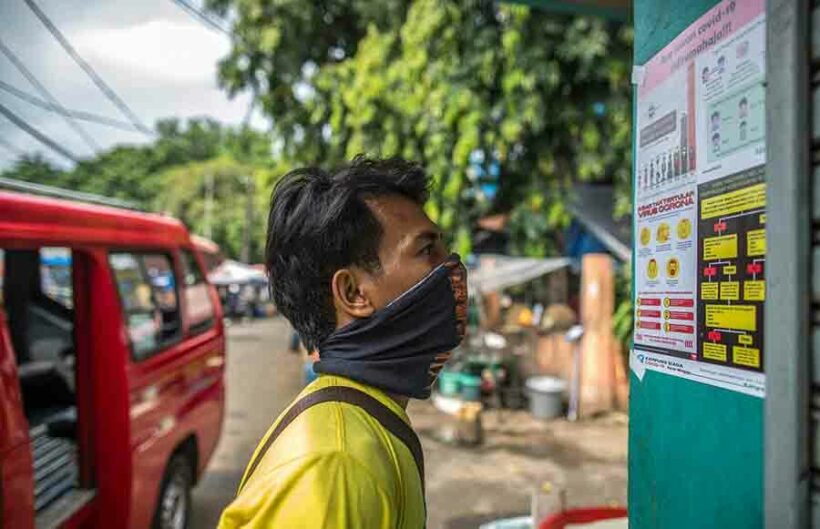Emergency restrictions to be imposed in Indonesia as Covid infections surge

The Indonesian government is introducing emergency measures aimed at curbing the spread of Covid-19 as infection rates rise steeply. President Joko Widodo says the restrictions are aimed at reducing new daily cases to below 10,000 and avoiding a collapse of the country’s healthcare system.
“This situation has forced us to take stricter steps. I have decided to impose emergency restrictions.”
Thai PBS World reports that the measures will come into effect in Jakarta, Java, and Bali tomorrow and will last for over 2 weeks. Widodo’s statement did not confirm what the restrictions would look like, but a statement from a senior minister’s office says all non-essential employees will have to work from home and schools will shut, with classes held online. Shopping malls and mosques will also be closed.
Indonesia is regularly reporting over 21,000 daily new infections, with officials voicing concern over new variants. The government has introduced restrictions in the past but has shied away from total lockdowns. Widodo has previously stated that the measures need to balance health concerns with the effect on the economy.
However, Thai PBS World reports that hospitals have been overrun with patients in recent weeks, including people infected with the highly contagious Delta variant. A number of hospitals have had to set up tents outside their premises to cope with the number of patients arriving, amid reports that some people are being turned away.
Indonesia has now recorded over 2.1 million infections and 58,995 deaths since the start of the pandemic. However, these figures are believed to be well below the real numbers, given the country’s low testing rate. The government has plans to vaccinate over 180 million people, out of a total of 270 million, by early 2022. To date, just 5% of the population has been fully vaccinated.
SOURCE: Thai PBS World
Latest Thailand News
Follow The Thaiger on Google News:
































